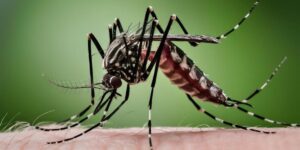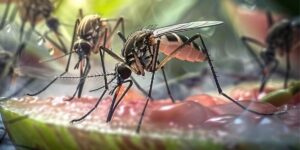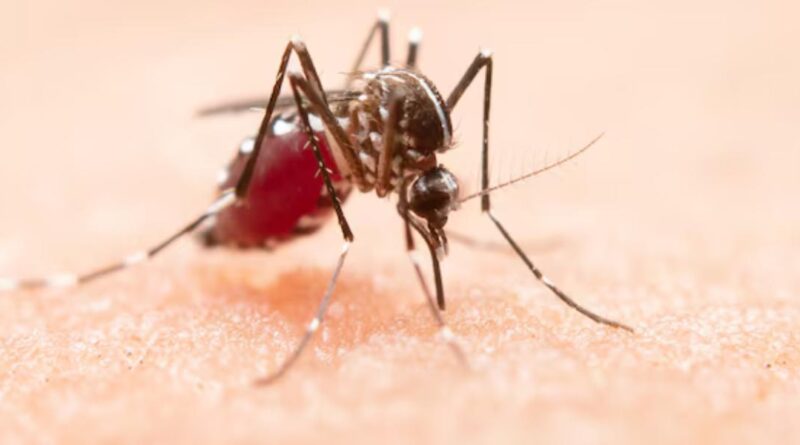Dengue Fever in Florida
Introduction
Dengue fever in Florida continues to be a major public health concern in recent years. The disease has presented a growing trend in cases, mainly in the tropical and subtropical regions like Florida. The warm, in combination with a wet state climate, is the perfect environment for aedes mosquitoes to breed—hence increasing the chances of dengue outbreaks. As people travel to and from regions endemic for dengue, the likelihood of the virus being introduced into Florida populations increases. Considering the signs, mode of transmission, and prevention of dengue fever is paramount to public health and preparation for any outbreaks that may occur.
What is the Dengue Fever

Dengue fever in Florida is a viral illness that is caused by the dengue virus, and the transference to humans is create through the bite of cause infection in. There are four different strains of this virus, also called serotypes, which means a person can be infected more than once. Most common symptoms of dengue fever are high fever, acute headache, sharp join and muscle pains, skin rash, and light bleeding such as nose. The cases of dengue fever are multiplying very quickly in the state of Florida, so residents or visitors should be educated about the symptoms, signs, and diagnosis of this disease.
How is Dengue Fever Spread in Florida
Dengue fever is spread through the bite of an aedes mosquito infected with the dengue virus. These mosquitoes are diurnal; most of their bites occur during the early mornings as well as in the late afternoons. The perfect storm of an increase in mosquitoes in Florida, combined with the high rate of travel to and from areas where dengue is common, contributed to the spread of dengue fever in Florida. Control measures by public health have been centered on vector control and education of the public on how to reduce the possibility of mosquito bites.
Dengue Fever Cases Spike in Florida

Dengue fever in Florida this increase has partially been contributed to by the ideal mosquito climate within the state, increased population movements, whether international or national from other states as many people, are moving to states like Florida, which are mosquito-friendly. The state of Florida health department follows up cases of dengue fever vigilantly and liaises with the local health departments on ways of controlling outbreaks. But the unpredictability of mosquito-spread illnesses suggests that the number of dengue fever cases in Florida may increase at any time. Health officials continue to emphasize that the risk of being infected by this disease can be reduced through prevention measures.
Dengue Fever Symptoms in Florida

Signs and symptoms of dengue fever in Florida may range from mild manifestations to severe and typically begin between four and ten days following the infected mosquito bite. The common symptoms include high fever, severe headache, pain behind the eyes, pains in the joints and muscles, weakness, nausea, vomiting, and skin rash. In some cases, the symptoms may get worse, and one may end up suffering from severe dengue effects, which results in bleeding, low blood pressure, and damage to the organs of the body. This makes it very important to ensure that anyone who starts to show the symptoms of dengue fever in Florida seeks medical attention as soon as possible since with early diagnosis proper treatment.
Preventing Dengue Fever in Florida

Dengue fever in Florida residents and visitors would be asked to apply insect repellent, such as those containing DEET, Picaridin, or IR3535, to the skin and clothing, to wear long-sleeved shirts and long pants, and use other methods to limit exposure. Other methods of prevention from mosquito bites include mosquito nets or screens. Properly discarding and storing of any items which are not in use will also help eliminate places for mosquitoes to reproduce. The mainstays of public health campaigns in Florida are education about the importance of mosquito control and personal protection, with a view to preventing dengue from taking a foothold in Florida. These pre cations help to prevent the virus from being acquired.
Treatment of Dengue Fever in Florida

Since there is no specific antiviral treatment available for dengue fever, its treatment is based on the relief of symptoms, in addition to supportive care. Mild cases of dengue fever in Florida are treated by getting adequate rest, intake of fluids, and the use of over-the-counter drugs, such as acetaminophen, that can reduce the fever and lessen the pain. One should stay away from medicines such as aspirin or ibuprofen because they tend to raise the risk of bleeding. Serious cases may require a patient to be admitted to a hospital in order to receive intravenous fluids, blood transfusions, and close monitoring. With early diagnosis and proper medical attention, the management of dengue fever in Florida.
The Role of Public Health in Controlling Dengue Fever in Florida
State health and public authorities dengue fever in Florida have incubated a step to prevent an outbreak and slow dengue virus’ transmission. Authorities conduct monitoring and reporting of new cases in the area, while public mosquito surveillance and control activities are carried out alongside effective health education regarding personal protection against mosquito bites. Very many mosquito control programs are instituted by local governments, which include spraying of insecticides, removal of standing water, and other measures that seemingly reduce mosquito populations. Public health campaigns in Florida are repeatedly impressing the necessity of early diagnosis and treatment to reduce dengue fever cases from becoming a serious to fatal illness and to prevent further transmission.
Dengue Fever in Florida in the Face of Climate Change
Changes in climate will majorly influence the spread of dengue fever within Florida. With an increase in temperature, Aedes mosquitoes become established in newer areas, escalating the danger of dengue behind epidemics. Increased temperature can also speed up the life cycle of mosquitoes, leading to larger populations that will increase the vector potential for dengue fever transmission in Florida. Public health authorities are concerned that, unless something drastic happens to shift the trends that are now emerging, it may serve as a sign of more frequent and possibly more virulent outbreaks of mosquito-borne diseases like dengue fever in the years ahead. Additionally, combating climate change is key for the control of dengue fever in Florida.
The Role of Community Involvement in the Prevention of Dengue Fever in Florida
Engagement of Floridians is very much needed for the suppression of the spread of dengue fever in Florida. As a part of this community, they can take action by themselves to reduce mosquito populations in and around homes by eliminating breeding sites like containers, standing water, gutters, and other mosquito hiding areas. Meanwhile, grass-roots organizations may spread information regarding dengue in Florida and advocate preventive means like application of insect repellent and wearing full-sleeve dress. By uniting forces, communities avoid the disaster of dengue and protect the health of its residents.




